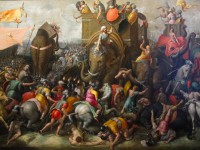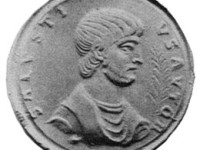The Battle of Zama and Hannibal’s Final Defeat
Around October 19, 202 BC, the Battle of Zama was fought between a Roman army led by Publius Cornelius Scipio Africanus (Scipio), who defeated a Carthaginian force led by the commander Hannibal. Despite Hannibal possessing numerical superiority, Scipio conceived a strategy to confuse and defeat his war elephants. The defeat on the Carthaginians‘ home ground marked an end to the 17-year 2nd Punic war. The Second Punic War The second Punic war between…
Read more






